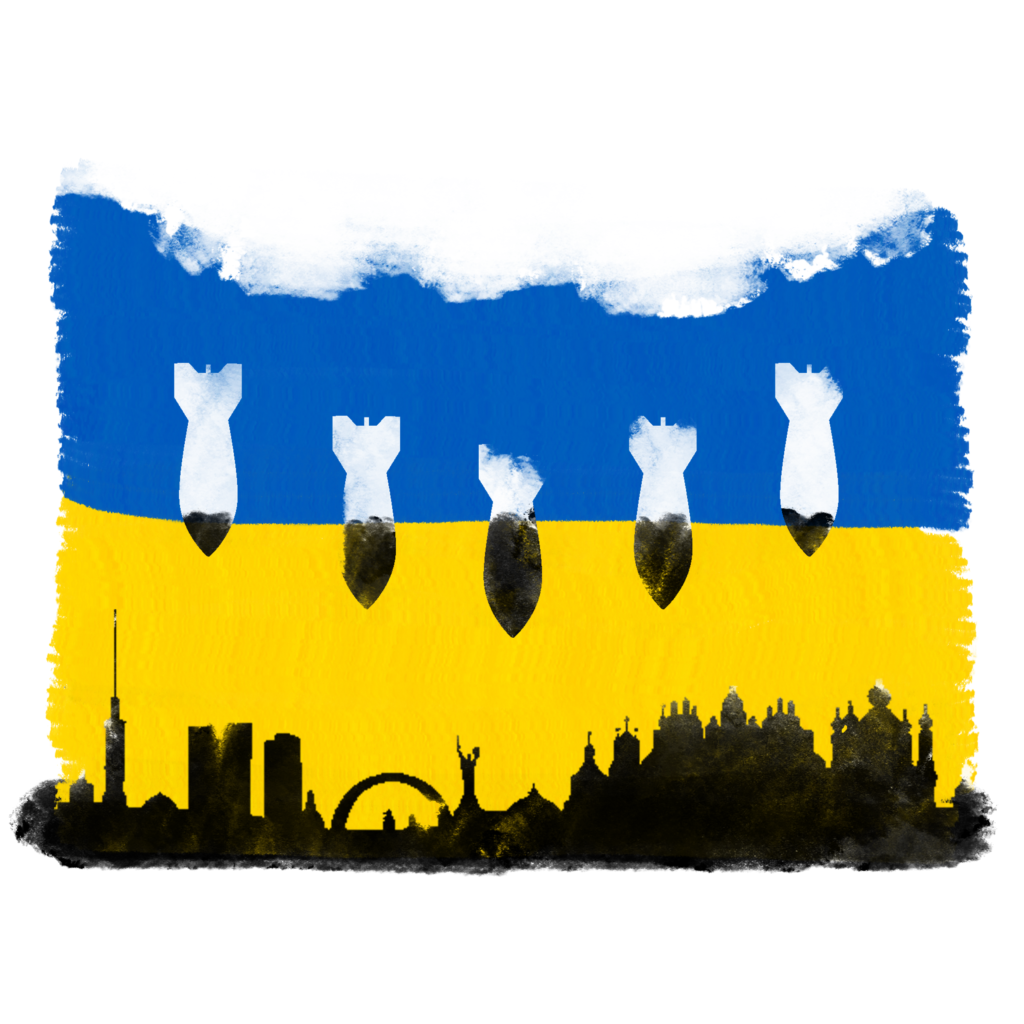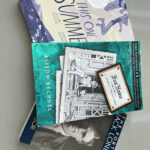For the first few months of the year, the weather in Portland, Oregon, dances on the edge of snowfall. Cold fronts and rainy days meet for quick dues but never stay together long––their brief bursts of hail remind us of snow that rarely comes. Birdbaths brittle on long, freezing nights and thaw on rainy days. Icicles form on windowsills and car bumpers, becoming cruel snowballs in the daytime. Children sled on grassy slopes and dry concrete, wailing when knees scrape and heads bounce. Wintery sounds emanate from the snowless city that dreams of snow.
“Next year will be better.”
Every year around Christmas, this phrase would accompany us in our snowless send-off into the following year. Its mere utterance would punctuate dinnertimes and winter walks, reducing conversation to a low grumble of sighs. On special occasions it might incur a cacophony of unconvincing “hopefullys” which would fail to brighten the mood. Ignorant in those moments, my friends and I, each of us no older than seven, would dig through our short memories to remember our first white winter—and while the parents shared nervous glances, our naivety gobbled their promises like Christmas dinner. “Next year will be better,” we would whisper amongst ourselves, dreaming of snow.
So I would whisper through those first few months. January would turn to February and February would turn to March. By spring break my snowy heartbreak would melt to a distant, panging memory. June and July were always kind to me, honest and faithful, doing what they promised. Waterparks and road trips and campfires filled 60 droughty days and nights with youthful elation. But when fall and winter came again those months would freeze behind me. I was too young to reminisce, or perhaps too young to care.
Years passed and “Next year will be better” returned each Christmas with a growing list of broken promises. Over those years I grew up: two feet taller and five grades smarter, I could now read my parents’ eyes as I met their gaze. But I found no honesty in the way they spoke that prevalent phrase—only sarcasm and fatigue. Two things I too would come to know over the following decade.
I was born in 2004 when the wars in Iraq and Afghanistan were still living in newspaper headlines. The time of the year: September, when 9/11 remembrance is still fresh in the air. Unbeknownst to me, my entrance into the world was underscored by something I would always know but never understand. When my parents were children, war was televised. Then it became sensationalized. By the time I was born, it was normalized—the patriotic background of American life. While hindsight says that in 2004 the wars in Iraq and Afghanistan were hardly in their infancy, “Next year will be better” had already begun its change from a hopeful phrase to a cruel symbol of two tireless conflicts.
And, although it took time, things would eventually get better: when the US left Iraq in 2011, my parents rejoiced. I was still too young to understand why, but I understood how. I saw how they smiled as I did for a quarter-inch of December snow. How they bathed in that short-lived bliss that wanes over lunchtime and vanishes by dinner.
When Trump was elected in 2016, a new phrase joined the proverbial pot from which my parents drew: “Things get worse before they get better.” Around this time we began studying politics in school: Abu Ghraib, North Korea, Border Policy. Tragedies thrust into my scholastic spotlight. Yet my political world remained restricted. We read polling numbers and death tolls on journals that sounded like weather forecasts. We took tests that quizzed dates, numbers and names of politicians who did things that I didn’t need to know. My knowledge became statistical and apathetic. I remember when Trump was elected and I walked into a sniffly class of upset 6th graders. A half-Puerto Rican girl in my class was crying. I knew why, yet I didn’t understand.
But when Trump was succeeded by Biden in 2021, and the US left Afghanistan, nothing seemed to change. At this point I was 17 years old and cognizant of the political age I had grown up in. While I never bothered myself with its two decades of grotesque history, I understood the gravity of the war that was now coming to an end. What I did not understand was what happened next—for the last five years, I believed I had lived in the shadow of the war in Afghanistan. I believed the end to it would revitalize America and bring forth a new political age. That sort of change would ultimately never come.
However, a few months later, when “Next year will be better” reclaimed its annual place in the family conversation, something did finally change. For the first time since being fooled as a child, the phrase held within it a shred of hope. And despite the events which had conspired over the course of my whole life, the lies upon lies upon lies that brought me to where I was—I too, briefly believed it.
But peace, of course, never lasts long, and on the 24th of February, 2022, Russian tanks made their advance onto Ukrainian soil. And while the first Russian bombs laid waste to Kyiv and its surrounding area, and journalists scrambled to report the story, the rest of the world laid still. But on that same morning, something else happened. Something far closer to home. Something just as rare and yet just as inevitable.
It snowed.
That morning I woke up to white bleeding through my curtains. Pulling them aside revealed the neighborhood as lightly clothed—dusted by a silken sheet folded on rooftops and piled in gutters. I smiled a childlike smile, the smile of skipping school to relax, the smile of walking out in the cold, the smile of warm drinks and long mornings. But at the same time, something turned over in the back of my mind. Prophecies that, in the past weeks, had consumed those dinnertime talks and spare moments with my family. I checked my phone and watched the war in Ukraine become real.
I scrambled downstairs to my parents, the household still shaking its 6:00 am lethargy, and looked down into their eyes as they nodded to me, my face oscillating between grimace and smile. Inside I was torn, ambivalent, my mind was a battleground between two different me’s—one who naively believed that “Next year will be better” could change something, and one who knew it wouldn’t. One that wanted to shout and cheer and one that simply asked “Have you seen the news?” In the end, I said nothing. I felt guilty, watching my morals buckle under the weight of childish desires––things which I had considered to have moved beyond.
Moments like these remind me of who I am. They remind me that I am white, that I am male, growing around people who look like me, in a city that looks like me. It reminds me that I think before I speak and act because my inner voice is often wrong. But you can’t think before you think––and so the best I can do is reflect upon it after.
So here I am now, recounting this story––not because I think the world needs an apology; not because I believe I can change myself. But because, in every step of my life, I believed myself astute––first I left my naivety in kindergarten, then in 4th grade, then 6th, then middle school. But now, looking back at all these places where I tried to leave naivety behind, I can see I never succeeded. Until war comes to me or until I go to war, until my safety itself falls under question, I will remain naive. I will stay inside my blue yet happy house, inside my white yet snowless city, inside my violent yet safe America, and say “Next year will be better” at the end of every year. And I’ll do nothing, and I’ll try nothing, and I’ll change nothing, and I’ll fix nothing, and—should I forgive myself—I’ll live happily during this war.





Leave a Reply